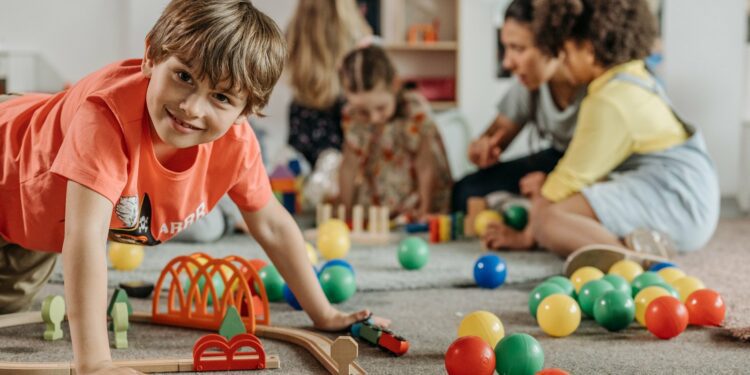Introduction
In the first few years of your baby’s life, you are busy learning all about them – their likes and dislikes, what they like to do, what they like to eat. In this article, we will look at how you can optimize your child’s learning during these early years so that they grow up healthy and happy.
Learning Environment
In the baby to preschool years, children are learning how to interact with their environment. This includes everything from understanding what they see and hear to figuring out how to move around and get things they want.
Learning Styles and Approaches
One of the most important aspects of early learning is to find a learning style that works best for your child. While some children love traditional lectures and textbooks, others prefer hands-on activities. And still others are more visual learners. It’s important to find a style that matches your child’s natural inclinations in order to help them learn more effectively.
There are many different approaches to teaching young children, from pure academics to creative arts. If your child struggles with traditional schooling, it may be helpful to try an approach that emphasizes hands-on learning. This can be found through home schooling, after-school programs, or even daycare settings.
There are also many different types of learning styles popular with preschoolers. The area of mathematics is one where this can be particularly noticeable. Some preschoolers excel at math by doing mental calculations in their head, while others prefer working with concrete objects and numbers. It’s important to find a style that works well for your child so they can learn as efficiently as possible.
Memory and Attention
In the early years of life, learning is a process that starts with memory and attention. Memory is the ability to remember information, and attention is our focus on what we are trying to learn. In the baby to preschool years, infants and young children are still growing and developing their memory and attention skills. Here are some tips for teaching your child to learn in these early years:
1. Introduce new information gradually. When your child is first learning a new fact or concept, start by sharing it slowly and building on it over time. This will help them retain the information better.
2. Encourage creativity and imagination. Help your child explore their world by encouraging them to think outside of the box, use their imagination, and come up with creative solutions to problems. This will help them develop problem-solving skills as well as memory and attention skills.
3. Distract your child when they are struggling to remember something. If your child tends to get distracted easily, try using humor or activities that are unrelated to the topic at hand (for example, playing with play dough). This will help them focus on the task at hand while they are learning new information.
4. praise your child when
Thinking Skills
The importance of thinking skills during the baby to preschool years cannot be overstated. The ability to think critically, plan ahead, and solve problems is key for both children and adults. This is why learning about thinking skills is so important. Here are some tips on how to develop your thinking skills:
1. Start with simple tasks. When you first learn a new thinking skill, start with simple tasks that you can easily complete. This will help you build confidence and mastering the skill will be much easier.
2. Practice often. Keep practicing your new thinking skill until you can easily complete the task without any hesitation. This will help you develop muscle memory and make the skill automatic.
3. Use visualization techniques. Sometimes it can be helpful to use visualization techniques when trying to learn a new thinking skill. Visualizing yourself completing the task can help you stay focused and motivated.
4. Take breaks occasionally. Don’t try to tackle too many new thinking skills at once; instead, take occasional breaks to allow your brain time to rest and recharge. This will help ensure that you continue to improve your skills over time!
Problem Solving and Critical Thinking
The baby to preschool years are a time for problem solving and critical thinking. This means that children are learning how to identify and solve problems. They are also learning how to think critically, which is important for success in school and in life.
One way children learn to solve problems is by experimentation. They may try different solutions to see what works best. Sometimes they will need help from adults, but most of the time they will figure it out on their own.
Another way children learn to solve problems is by observing others. They may watch someone else do a task and try to duplicate the steps. Or they may watch a video or TV show and learn how to do something by watching it happen.
Children also learn to think critically by questioning everything they see, hear, or do. This includes not just adults but also other children their age. It is important for children to be able to ask questions and get feedback when they are trying to figure something out.
Social and Emotional Development
In the baby to preschool years, social and emotional development are of utmost importance. Children learn best through relationships with others, so it is important to establish healthy social and emotional connections early on. Here are some tips for fostering social and emotional development in your baby:
-Make time for fun activities with your baby. This will help them develop a sense of joy and happiness, which will help them in their social and emotional development later on.
-Be sensitive to your baby’s moods. If your baby is crying or seems unhappy, try to find out what is causing the issue and address it promptly. This will help build trust between you and your baby, which will be essential for their social and emotional development down the road.
-Spend time with your baby alone. This gives them a chance to explore their own thoughts and emotions without distractions from other people. It also helps them develop self-awareness and confidence.
-Model healthy social and emotional behaviors yourself. This includes being responsive when your baby cries or needs attention, being respectful of your child’s space, and taking care not to overstimulate them unnecessarily.
Conclusion
Learning is a never-ending process, and it starts in the earliest years of life. When you are pregnant, you will be given information about your child’s development and what to expect. However, as your child grows, there are many things that he or she may not tell you. This is where a pediatrician can help. A pediatrician will have access to all of the latest research on early learning and developmental milestones so that you can be sure that your child is getting the best possible care.




